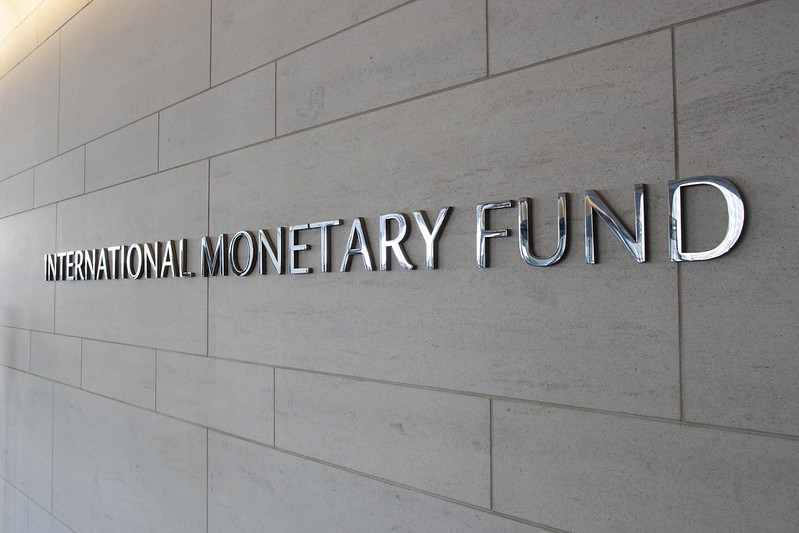Mend Mariwany, Producer, The Conversation Weekly, The Conversation Weekly Podcast, The Conversation
Science + Technology Editor & Co-Host of The Conversation Weekly Podcast, The Conversation
In countries across the Global South, the launch of IMF programs often sparks considerable concern. This is because of the IMF’s reputation: during the 1980s, many nations in Africa, Asia and Latin America turned to the IMF seeking loans to mitigate economic challenges. These loans were accompanied by stringent conditions, and countries faced pressure to reduce public subsidies and social spending, downsize the public sector workforce, and increase taxes.
Originally founded after the second world war, the IMF aimed to provide a framework for countries to cooperate in managing their exchange rates and to facilitate international trade. Since then, it has evolved to provide financial assistance and support to countries facing economic crises and emergencies worldwide. Member countries contribute a certain amount of money to the IMF based on their economic size, and in turn, they are able to access loans as a means of aid.
During the recent COVID-19 pandemic, the IMF extended loans to over 80 countries. Presently, more than 90 countries remain indebted to the IMF, with such loans being accompanied by policy conditions.
In this episode of The Conversation Weekly, we speak with two researchers about the impact of IMF loans on recipient countries and why countries continue to rely on IMF loans. We also discuss potential alternatives to this system.
Ongoing impact of colonialism
Danny Bradlow, a Professor of International Development Law and African Economic Relations and Senior Fellow at the University of Pretoria in South Africa, highlights the harmful effects of IMF-imposed austerity measures.
The ongoing impact of colonialism means many countries in the Global South “were in a very dire situation to begin with,” Bradlow explains. “The IMF said if you follow our policy prescriptions, things will turn around and you’ll do much better.”
The measures imposed by the IMF limited access to healthcare and education for poorer people. Throughout the 1980s, the IMF pressured country after country — in what’s often known as Structural Adjustment Programs — with lasting damage on economies and populations.
The policy measures dictated by the IMF also had detrimental environmental consequences. To encourage economic growth, many countries were pressured to shift “from producing food to producing agricultural products that you could sell on the global markets,” Bradlow says. “Often that meant you were using more environmentally damaging fertilizers, or you were doing extractive mining projects that were environmentally damaging. In some cases it was logging, so countries would tear down forests.”
Prolonged debt and austerity
Attiya Waris is Associate Professor of Fiscal Law and Policy at the University of Nairobi in Kenya, and an expert on foreign debt and international financial obligations and their implications for human rights.
As part of her work, Waris sheds light on the experiences of Argentina and Pakistan. Both countries have received multiple loans since the 1950s to address economic challenges such as inflation, currency devaluation, and external debt crises. Argentina currently holds the highest outstanding debt of US$46 billion, while Pakistan ranks fifth with US$7.4 billion.
“Pakistan is one of 14 countries across the world that has a loan with the IMF that has a surcharge on it. A surcharge means that if you are paying a 1% interest rate and you default on your payments, then you’ll be paying 3%. So you’re being penalized for being unable to pay,” Waris explains. This in turn increases the likelihood of prolonged debt and austerity.
But for Waris, one of the biggest problems is that the contracts around IMF loans are extremely opaque, meaning it’s difficult to hold the institution to account or even evaluate what impact it has beyond the austerity measures.
“This is problematic because there can be no societal oversight over what a group of human beings in their country are deciding to take on, on their behalf,” she says. “Representative, democratic or otherwise, people need to know what their governments are doing on their behalf.”
For Bradlow, there are signs for positive change. A recent research paper shows that the IMF acknowledges some of the devastating impacts it has had on countries. In the paper, it identifies areas of enhanced focus, including climate change, gender, inequality, and social protection. However, while the IMF has adapted its focus and policies to address some of the negative consequences, it remains uncertain how it will achieve these goals.
The Conversation has reached out to the International Monetary Fund for comment regarding the issues covered in this episode and is awaiting response.
Listen to the full episode of The Conversation Weekly to learn more about the impact of IMF loans on recipient nations, the potential benefits of allocating funds for public services in the Global South, and the importance of implementing accountability mechanisms within the IMF.
This episode was written and produced by Mend Mariwany, who is also the executive producer of The Conversation Weekly. Eloise Stevens does our sound design, and our theme music is by Neeta Sarl.
You can find us on Twitter @TC_Audio, on Instagram at theconversationdotcom or via email. You can also subscribe to The Conversation’s free daily email here.
Listen to “The Conversation Weekly” via any of the apps listed above, download it directly via our RSS feed or find out how else to listen here.
This article is republished from The Conversation under a Creative Commons license. Read the original article.
Main photo by Simone D. McCourtie/World Bank on Flickr.
Charles Telfair Centre is an independent nonpartisan not for profit organisation and does not take specific positions. All views, positions, and conclusions expressed in our publications are solely those of the author(s).
